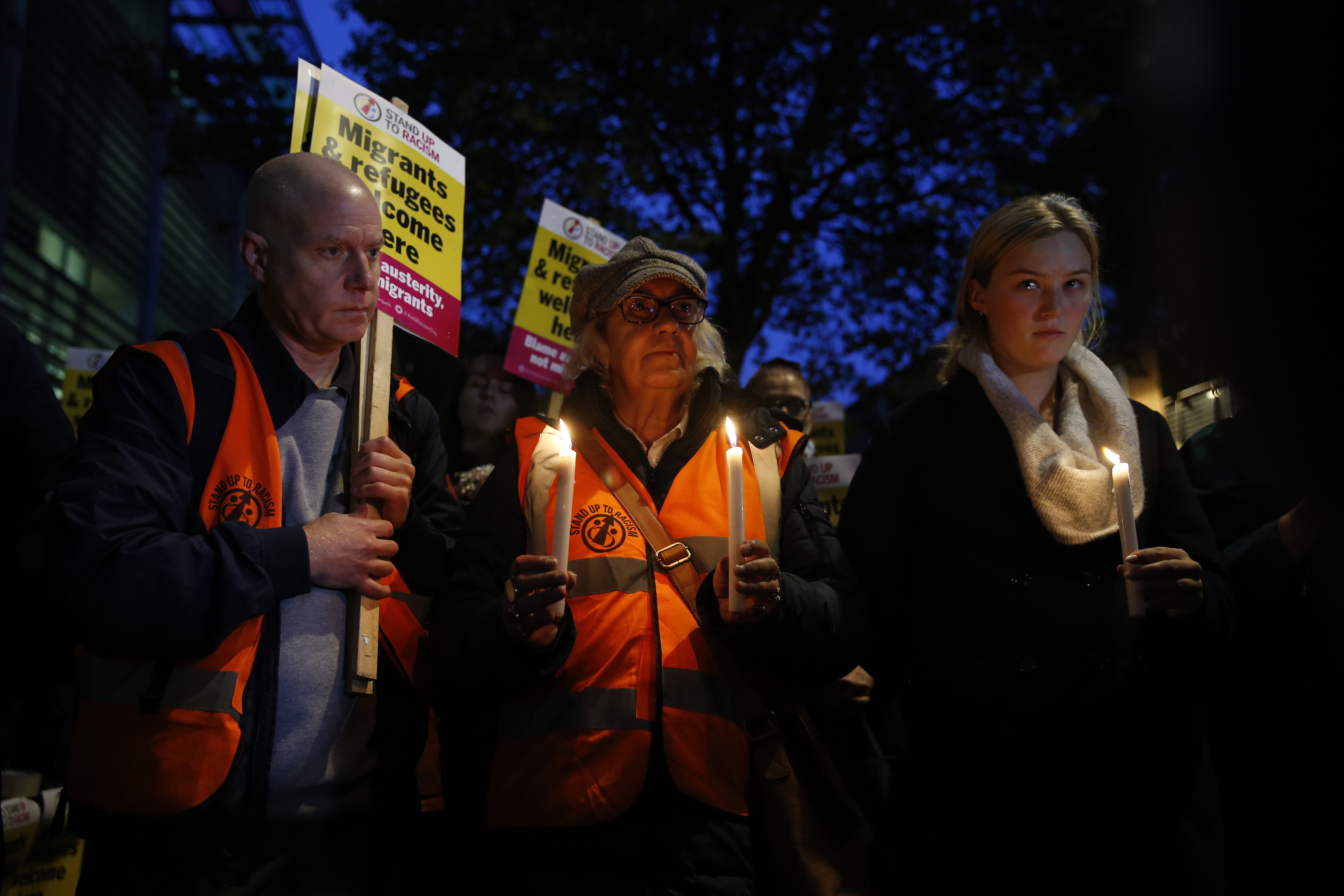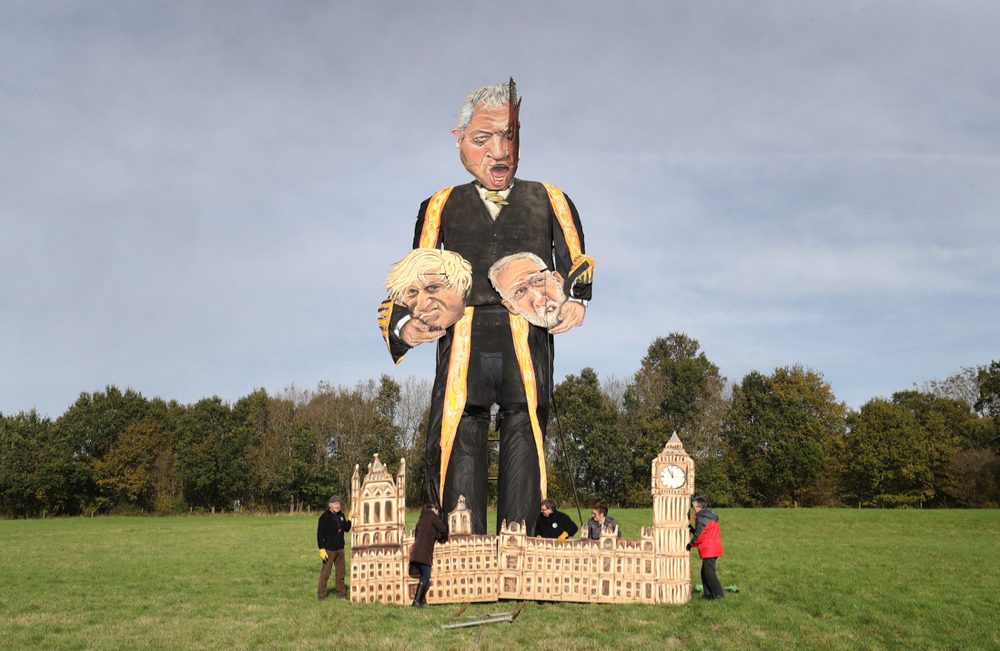The United Kingdom Conservative and Unionist Party should be more careful what it wishes for. A quite likely outcome of the General Election which Parliament has agreed to hold on December 12, and which the Tory party was so to speak gagging for, will be the breakup of the Union, regarding Scotland; and severely weakening it, regarding Northern Ireland.
The Scottish Nationalist Party has the wind in its sails and will most likely sweep all before it. It will demand a new, post-Brexit independence referendum next year, and will not be gainsaid. The Democratic Unionist Party has realised, not for the first time, just how perfidious Albion can be as it sees its mooring ropes to the British mainland being sawn through with hardly a thought for the consequences. They could sue the Tories, on the grounds that the word "Unionist" in the party's title is a breach of the Fair Trading Act.
So while one part of the United Kingdom – Scotland – wishes to close its north-south open border with the rest, another part, Ulster's troublesome Six Counties, objects ferociously to the placing of any sort of border, de facto as much as de jure, between itself and the British motherland. Or indeed between itself and the Republic. Or at least the respective political leaderships do – what the Belfast or Glasgow woman or man in the street really wants is yet to be tested in the ballot box.
I strongly suspect there may be a Northern Irish majority which would prefer, like the majority in Scotland, to choose to remain inside the European Union rather than inside the United Kingdom, if push came to shove. Perhaps Northern Ireland should unite with Scotland, so both of them can break their ties to England and Wales at the same time. It would serve the English right. And what of the Welsh, with the second best rugby team in the British Isles? All to play for...
These are some of the issue that were thoroughly ignored as the Westminster bulldog thrashed about with its Brexit doll in its mouth for three years, a crisis that was never about the unity of the United Kingdom but the unity of the Conservative Party. As if we cared: there is no groundswell of distress in London and the home counties at the thought of Northern Ireland being lied to and abandoned; and while Auld Lang Syne may take on a particular poignancy when sung in Trafalgar Square on Scottish Independence Day, the most common English response will be "Good luck with it. Let us know how you get on." Brexit was supposed to be about national self-determination, after all. Nor does the division of right-wing opinion between the Tory and Brexit Parties greatly worry us, in this age of fluid loyalties.
No, the issue we will be made to care about will be the choice between two flawed characters, Boris Johnson and Jeremy Corbyn, who are the best the two main parties at Westminster can come up with as future national leaders. The more closely one examines the case for Boris, the stronger becomes the case for Jeremy – and vice versa. That the British political system has thrown up these two "deplorables" – to use an American expression – merely proves how dysfunctional it is.
Boris Johnson will concentrate on Brexit, in his campaign, showing that only the Tories can "get it done". This is based on two questionable assumptions; one, that the people want it done, given that the polls have consistently shown a significant margin in favour of remaining in the EU; the other, that there is a moral imperative behind getting it done because of the 52-48 majority for Brexit in the June 2016 referendum. Indeed, many Tories speak as if not wanting Brexit to happen is self-evidently immoral and therefore shameful, something no decent person could admit to.
The public were promised that if they voted for Brexit, we are reminded, Brexit was what they could have. That is true, and both parties repeated it in their 2017 General Election manifestos. But a manifesto is a programme for a majority government, and we all saw how quickly and shamelessly both parties tore up their pre-election manifesto promises in the 2010 coalition negotiations after no single party had emerged as the winner. This is inevitable in a hung parliament. No single item in a manifesto should be regarded as a binding commitment in isolation: manifestos are packages, and General Elections are not single issue referendums. In any event, "if a democracy cannot change its mind, it ceases to be a democracy,” as arch-Brexiteer David Davis told us in 2012.
Furthermore Brexit can mean many things, and not just, to use Theresa May's infuriating tautology, Brexit. Let me count the ways: there is her deal, rejected three times by Parliament as too Brexity or not Brexity enough; there is her deal mark two, after negotiations with Labour to make it more acceptable to them, but still not quite what they wanted; there is Labour's own Brexit, promising continuing membership of the EU customs Union and close alignment with the single market; and Labour's Brexit mark two, all the above plus a "confirmatory people's vote" in the hope that most Labour supporters would vote against it; there is "No deal" Brexit which the Tories used as a threat to get a better deal from the EU, like a car salesman telling a prospective customer "if you don't buy this used car I shall blow my brains out"; there is Boris Johnson's actual deal, for what is known in the trade as a hard Brexit; and there is Nigel Farage's clean-break Brexit, the only One True Brexit, which inflicts creative destruction on British industry in the name of "taking back control," and which will avoid us having to listen to foreign languages on our way home in the train "before we get past Grove Park", to use his own expression. That makes seven possible versions (so far). Or sept, sieben, sette, siete, sete, if one is still at Hither Green.
So which of them equals the Brexit the 52 per cent voted for? Most of them are mutually exclusive: you can't choose a hard Brexit and a customs union. We should now be grown up enough to regard the 2016 referendum decision as expired, for several good reasons – for lack of precision, for being too long ago, for trying to bind a democracy indefinitely, and above all for no longer looking like the good idea it may once have been. And for breaking up the United Kingdom in a moment of English Tory bloody-mindedness.



 Loading ...
Loading ...
What do you think?
You can post as a subscriber user ...
User comments (0)